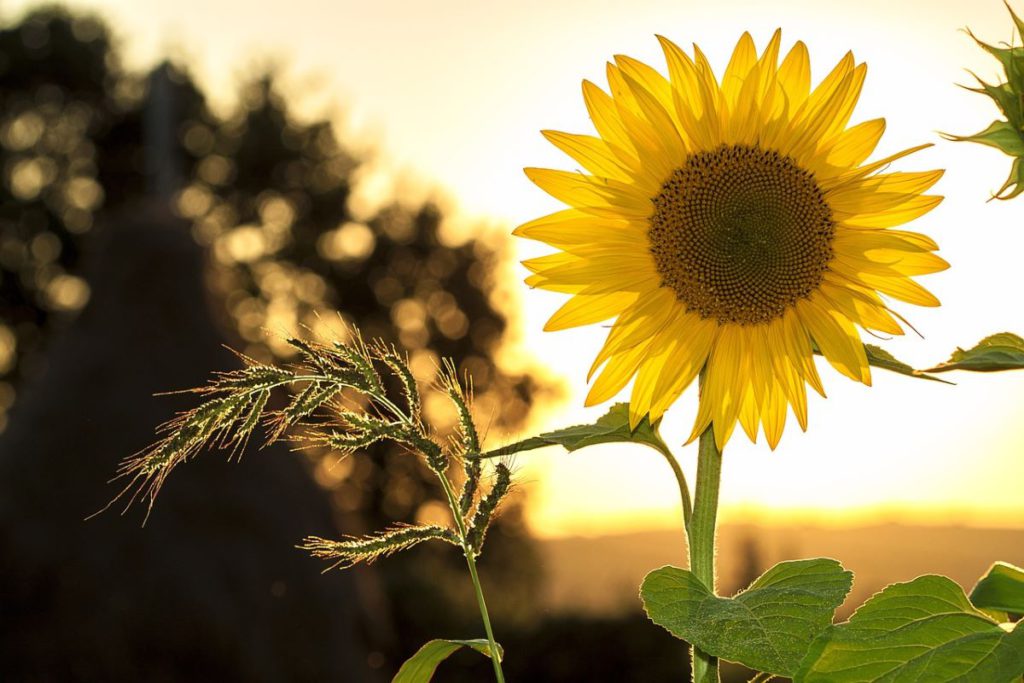The mulch materials that you choose for your vegetable garden may be functional, but they are not necessarily pretty. In addition to using mulch on your vegetable or flower beds, you may want to use it for protecting your trees as well. Finer types are great for vegetable gardens and flower beds.
You can also dig a little trench around flower beds to catch mulches before they run off into the grass. In a flower bed you are digging over each year to plant, or a vegetable garden, you are better off with mulch that is easier to dig into and quicker to decompose.
Applying a mulch deeper than 3 inches may damage the bark on trees and shrubs covered with the mulch, hinder water and oxygen penetration, and force roots up through the mulch rather than down deep into the soil. Too much rotting mulch mixed in with soil may draw nitrogen out of the soil. Mulch may promote bark rot if it is packed around tree and shrub trunks.
Mulch may cover annual plants (such as vegetables) and herbaceous perennials (such as flowers that emerge new from their roots each spring), but mulch should never cover woody plants that have bark, including trees.

A pile of moist mulch near flower and vegetable stems will rot them; keep your mulch approximately an inch from the crowns and stems. Fall mulching keeps soil moist, which can lead to root rot and plant death. If you live in an area that gets colder and rainier during summer, using moisture-retentive, ground-cooling mulch could have catastrophic results.
This kind of soil typically gets dry as the season goes on, so do not blanket it in thick, moisture-retentive mulch. Your compost will enrich the soil and keep plants happy, but remember, any type of mulch is not a happy place for a plant’s roots when it is drying.
This is particularly true of compost used as mulch, as the nutrients within will encourage soil microorganisms and feed plant growth. Not only does it appear neat and crisp, but this type of mulch also holds soil moisture, keeps weeds at bay, and adds organic matter to your soil when it breaks down. Both types of mulch keep weeds at bay, but organic mulches also enhance soil when they decompose.
Organic mulches are natural products made of leaves, trees, grasses, and other plant materials, usually found in your yard. Over time, types of mulches for gardens made of organic materials (those produced by or from living things) will decompose and improve the texture and fertility of your soil. You get all of the benefits of mulching the soil, plus it provides some protection against lawn tools such as weed mowers.
If you are just counting on looks to cover up your vegetable beds, then coloured mulches or non-organic ones may work well for you. Both organic and inorganic mulches can be used efficiently in your yard. For instance, bush mulch can be used to enhance the look of the soil and provide nutrients to it. You can take it a step further by decorating some parts of your garden with 20mm crushed rock to add more style to it.
When it comes to inorganic mulches, they do not dissolve, so the quality of the soil remains mostly intact. Some people prefer to use plastics or geotextiles, like landscape fabric, to keep some mulches separate from the soil.
Both plastic sheets and other synthetic layers may encourage runoff of water, and they do not allow garden soil to benefit directly from the mulch (good organic mulches nourish soil). Silver plastic mulch works well for warmer spring soils but does not keep weeds out; soil gets hotter in mid-summer with clear plastic, and plants can get damaged unless there is shading. Synthetic mulches, such as black plastic on the planting rows and permeable landscape fabric between rows, are great synthetic sources of mulch for vegetable gardens, and they can increase soil temperatures by 10 to 12 degrees early in the spring, allowing for early starts on cool-season and hot-season crops.
If you have not added any mulches yet, or are working on replacing them, you may want to skip the herbicides entirely and install a landscape fabric to prevent the growth of weeds instead.
Applying mulch helps keep weeds at bay, reduces evaporation and retains moisture, adds organic matter and valuable nutrients to your soil, and more. Sometimes mulch is used strictly for decorative purposes; other times, mulch is used for controlling weeds, tempering temperatures, maintaining moisture levels, and adding nutrients to the soil. In a garden, mulch may also include compost, wood chips, manure that has been left to decay, cardboard, or even algae.
We can also use organic mulch, including straw, leaf mould, grass clippings, wood chips, and leaf shavings, for crops that prefer it cool. Organic mulch includes previously living materials like chopped leaves, straw, grass clippings, compost, wood chips, shredded bark, sawdust, pine needles, and even paper. Spread a wood-chip mulch or leaf-shredded mulch wherever you want on your property, but they look best in your flower beds, shrub borders, and in garden paths.
That means you might want to save your compost for spreading in thin layers around plants and cover the compost with another mulch, like chopped leaves. You can do the topping up easily by adding another thin layer of mulch over your existing beds. Too much mulch (a layer deeper than 3 inches) will sink in and choke plants as water and oxygen won’t be able to get to the roots.
Existing weeds can also carry seed for the weeds, which may lie dormant in mulch until they decide to sprout and cause damage to your vegetable beds. Plants prefer dry soil, however, and can be hindered by the wet nature of soil protected with mulch.
Overheating can make the soil barren or kill beneficial organisms, so make sure you investigate the best types of mulches for your climate. Mulching is a great way to create healthier soils and maintain the health of plants. Compost, dried leaves, dried grass clippings, and even newspapers and cardboard make excellent mulches for your vegetable garden, though papers and cardboard do need a little bit of managing so they do not blow into the neighbour’s lawn during windstorms.

